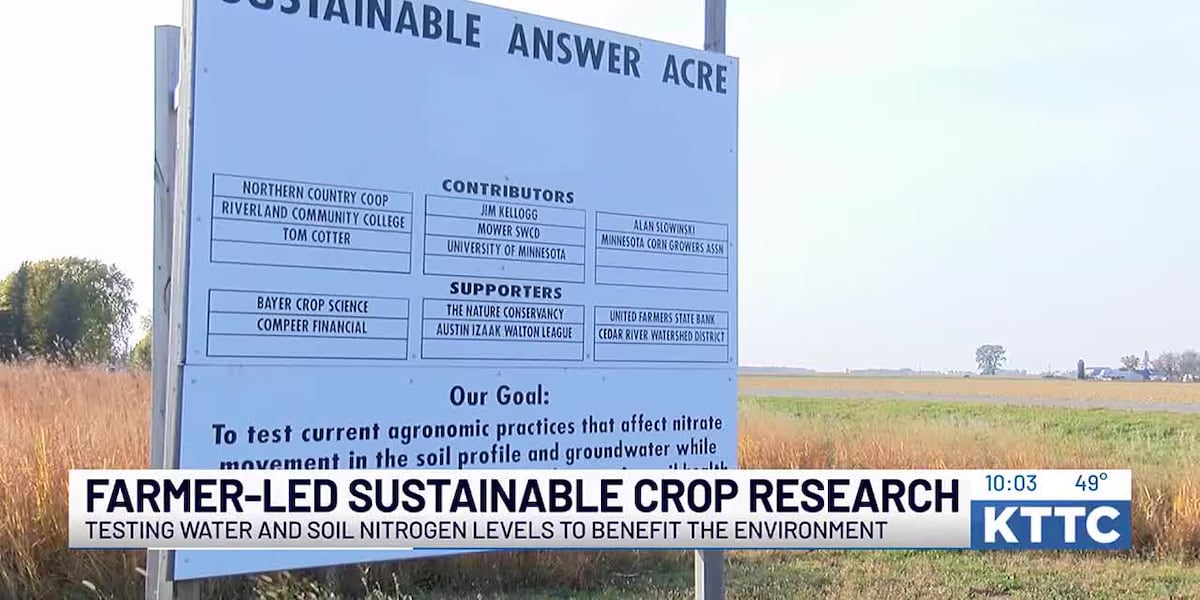ROCHESTER, Minn. (KTTC) – A few miles north of Austin Minnestoa the Sustainable Anwer Acre (SAA) farm is an 8-acre plot of land used for farming sustainability research and owned by Nexus Cooperative.
The research team is a farmer-led group and works with ten separate organizations, including:
Nexus CooperativeMower County Soil and Water Conservation District Riverland Community CollegeUniversity of Minnestoa Nature ConservancyMinnesota Corn Growers AssociationBayer Crop Sciences Nature Resource Conservation ServiceCompeer FinacialUnited Farmers Bank
Since 2018, SAA has been conducting studies to analyze farming fields and has aimed to find a better solution for potentially dangerous water and soil nitrogen levels.
Mower County Farmer Tom Cotter said the team and its partners are using his fields as test plots. He said they are working to control nitrogen particles from ground waters that farmers have used for crop growth.
“When raindrops hit the ground, it’s like an atomic bomb and it explodes, and those particles become smaller and smaller, and that’s what drifts away so easily,” Cotter said.
Cotter mentioned this research has been using cover crops, like alfalfa or grass, to soak up excess nitrogen in the soil. He said this has allowed for less nitrates in drinking water and instead keeps the nitrates in the soil.
“That means the chemical, pesticides, insecticides, fertilizer, manure, whatever you have out there is going to stay in the field where we want,” Cotter commented.
Cotter added that this practice has saved nitrogen that crops value for growth and could alleviate future nitrogen costs for farmers ahead of a future grow season.
While nitrogen is used to help crops grow, Steve Lawler with Mower County Soil and Water Conservation said excess amounts of nitrates can contaminate water and will eventually reach into water wells and streams.
“Sometimes it can end up in tile water or it can end up in groundwater further below that, and that’s when it becomes a concern,” Lawler said.
Lawler claimed their research is looking to control levels of nitrogen in waters that pass through croplands.
“We’re trying to find the best combinations of practices that would reduce the amount of nitrate nitrogen getting into groundwater and surface water,” Lawler vocalized.
Lawler articulated that this research has shown a “scary” amount of nitrogen levels in groundwater 10 ft below local crop fields.
“That water’s connected directly to the Cedar River, a half a mile to the east, so all that connects to the Cedar River,” Lawler mentioned. “And we test that as well, we’re coming up with high nitrates in the Cedar River.”
This research team said they will be collecting more data over the coming years to create a final thesis about the best farming practices to use for controlling nitrates in soils.
For more information about this research and SAA visit the Riverland Community College website.
Find stories like this and more, in our apps.
Copyright 2024 KTTC. All rights reserved.
